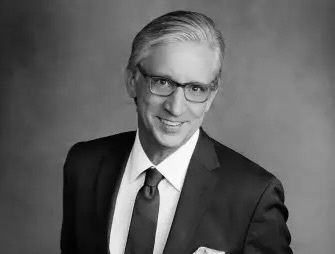People
-
Anastasia Titarchuk

Anastasia Titarchuk is the chief investment officer and deputy comptroller for New York State’s Common Retirement Fund. As of March 31, 2023, the value of the Fund was $248.6 billion. She is a member of the Federal Reserve Bank of New York’s Investor Advisory Committee on Financial Markets, and the Treasury Borrowing Advisory Committee(TBAC). Titarchuk
-
Eric Resnick

Eric Resnick is co-founder and CEO of KSL Capital Partners, a leading global private equity investment manager specializing in the travel and leisure industry. Since 2005, KSL has raised approximately $18 billion of capital across dedicated equity, debt, and tactical opportunities funds. KSL is deeply rooted in travel and leisure dating back to its predecessor
-
Marvin Rosen

Marvin S. Rosen practices in the area of corporate and securities law, advising private equity firms, hedge funds, and activist and distressed investors on special strategies. Rosen serves on the board of directors of Robert F. Kennedy Human Rights, the Howard Gilman Foundation, Roundabout Theatre Group, and Nikko Asset Management Americas, and he is on
-
Sancia Dalley

Sancia Dalley is senior vice president of investor engagement and strategic partnerships at Robert F. Kennedy Human Rights, where she leads the RFK Compass Investors Program, a network of 400 institutional investors, asset managers, and investment consultants who collectively control close to $7 trillion in assets under management in private markets and who are committed
-
Neil Randall

Neil Randall is the managing director of the private equity team at the Teacher Retirement System (TRS) of Texas. In this role, he has primary responsibility for a $30 billion private equity portfolio, is the chair of the Private Equity Investment Committee, and serves on the TRS-wide Management Committee. Randall was a member of the
-
John Haggerty

John A. Haggerty is the managing principal and director of private market investments at Meketa, an independent, full-service investment consulting and advisory firm. In this position, Haggerty manages senior teams, consults with clients, conducts macro- and investment-level research, and serves on limited partner advisory boards. He is chair of Meketa’s Private Markets Policy Committee and
-
Bob Pisani

A CNBC reporter since 1990, Bob Pisani has covered Wall Street and the stock market for 24 years. Pisani covered the real estate market for CNBC from 1990 to 1995, then moved on to cover corporate management issues before becoming on-air stocks editor in 1997. In addition to covering the global stock market, he also







Share